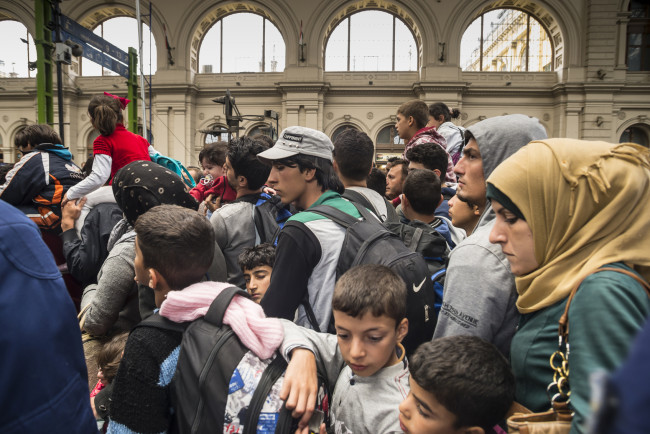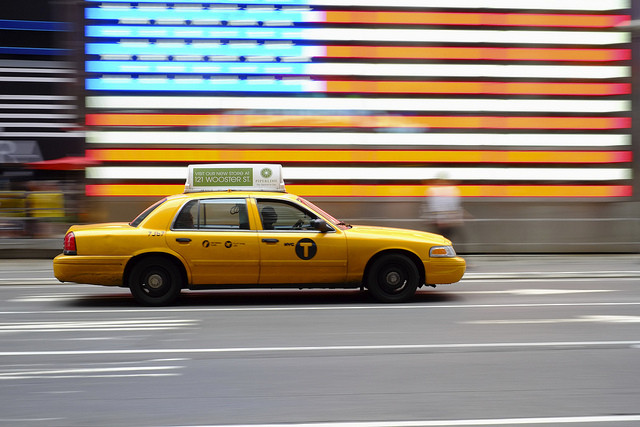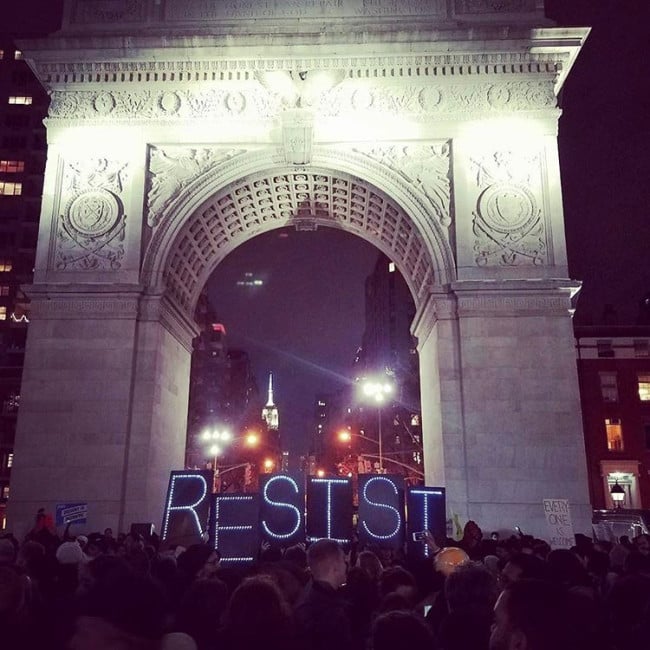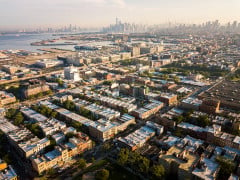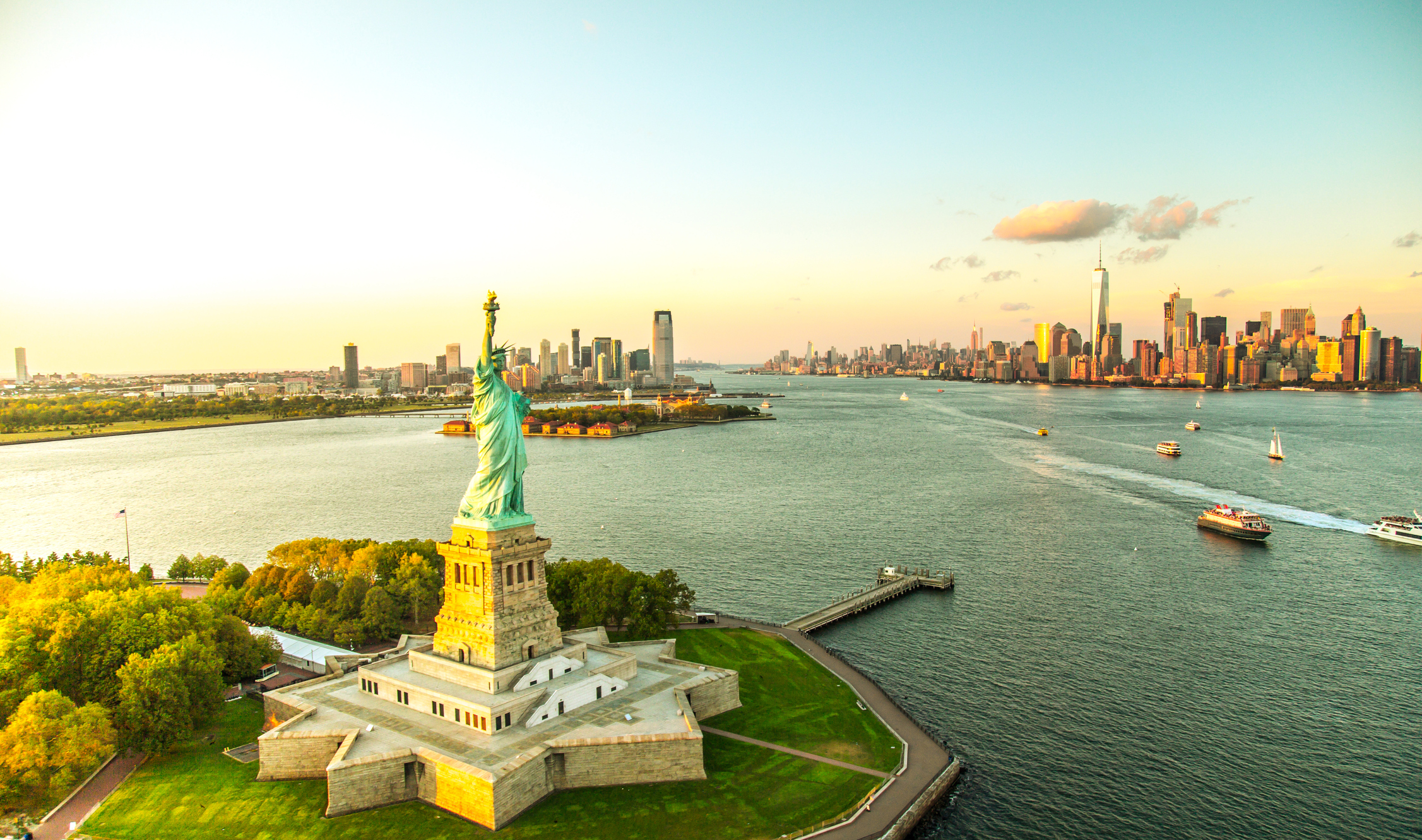
The Brick Underground Podcast Season 2, Episode 3: Sanctuary city, NYC
Give me your tired, your hungry, your huddled masses yearning to breathe free: Those words are etched on a plaque at the base of the Statue of Liberty, but these days, you could also add this: Give me your undocumented immigrants.
In light of the Trump administration's crackdown on immigration, many urban areas throughout the country have been mounting a resistance, declaring themselves sanctuary cities—which promise to protect undocumented residents from deportation by Immigrations and Customs Enforcement (ICE)—or, as is the case in New York City, re-committing themselves to serving as one. NYC has been a sanctuary city since 2014, when Mayor Bill de Blasio signed two bills limiting enforcement of what the city deemed were "overbroad" immigration initiatives from the federal government that targeted the undocumented population, except for cases that raised major concerns about public safety. (The mayor has previously pegged the number of undocumented immigrants living in the five boroughs to be nearly half a million.)
In response, Attorney General Jeff Sessions has threatened to cut federal funding to these cities, arguing that by providing sanctuary to those who aren't authorized to live and work in the United States, places like New York are making the country less safe. State Attorney General Eric Schneiderman, meanwhile, contends that immigrant communities are essential to NYC and Trump's policies are "un-American."
What does it mean to be a sanctuary city? What protections does New York offer in this role? For this episode, we spoke with Hasan Shafiqullah, supervising attorney in the Immigration Law Unit at the Legal Aid Society, about what immigrants—documented and undocumented—can expect from living in a sanctuary city, and the challenges they face in this political climate.
Being a sanctuary city essentially means that local law enforcement officers won't agree to detain the undocumented and turn them over to ICE once they're done investigating and prosecuting their cases, or after they're released from jail, explains Shafiqullah. In essence, sanctuary cities are basically refusing to work with the government on initiatives that specifically target undocumented immigrants, in part because law enforcement officials say it hampers their efforts at community policing, which relies on the cooperation of locals within neighborhoods to keep neighborhoods safe.
If immigrants in local communities grow suspicious of police—reportedly the case with the ramp-up on immigration enforcement—they won't work with them on criminal investigations and won't report crimes perpetrated upon them. (The Los Angeles Times recently reported, for instance, that "reports of sexual assault and domestic violence made by the city’s Latino residents have plummeted this year amid concerns that immigrants in the country illegally could risk deportation by interacting with police or testifying in court.")
Though critics contend that sanctuary cities are flouting the law by refusing to turn in criminals to ICE for deportation, it's not exactly true. De Blasio has said that the New York City Police Department does cooperate with the Department of Homeland Security when it comes to illegal immigrants committing violent offenses (here's a list of the more than 150 crimes that the NYPD does cooperate with ICE on for deportation). It doesn't, however, do so when it comes to non-violent crimes.
Supporters of the sanctuary cities movement also contend that the government isn't just deporting violent offenders, and that legal immigrants are also under the microscope. Shafiqullah says immigrants of all stripes, whether they have legal status or not, have reason to worry. In these sensitive times, he says something "as minor" as a ticket for fare evasion—say a legal immigrant (yes, legal) forgot his Metrocard yet again but was late for work, went through the turnstiles without paying, and was subsequently stopped for the second time—that could get a person deported. "It's not just undocumented people," he says. "Even long-time permanent residents can be deported for very low-level offenses."
The New York Times recently published an editorial decrying ICE director Thomas Homan's contention that "when law enforcement agencies fail to honor immigration detainers and release serious criminal offenders, it undermines ICE’s ability to protect the public safety and carry out its mission." The paper's editorial board wrote:
When local authorities decline to honor ICE detainers, they can have any number of good reasons for doing so. A likely one is the Fourth Amendment, which forbids imprisoning anyone without justification. If a police department is about to release someone who posts bail, it can’t prolong the detention — in essence, arrest that person again — just because ICE asks it to. Federal courts have repeatedly ruled that the local police cannot be forced to honor a detainer in violation of the Constitution. That is, without an arrest warrant from a judge. Which an ICE detainer is not.
Of course, not everyone in the city agrees with the sanctuary city designation: New York State Assembly member Nicole Malliotakis recently spoke to WNYC and called for an end to it. (She says she also has identified more crimes—grand larceny, sexual abuse—that ought to be added to the NYPD's aforementioned original list of exceptions to the city's sanctuary stance.)
But before we hear from Shafiqullah, we check in briefly with a local couple, Julie and David (names have been changed per their request for anonymity), who spoke by phone with our reporter Alanna Schubach about what their lives have been like since the elections, and how their plans have been brought to a halt:
"Hispanic people are targeted as immigrants, but everyone immigrates here for the same reason: to find a better way of life. I’m looking for a safe place to raise a family. But I don’t want to have kids who might be raised without a father. I’m not going to have my wife raising a kid by herself and I’m in another country. It’s not an option for us."
(Read more about their experience in their own words here.)
This podcast was produced by Jhoanna Robledo and Jenny Falcon, who also edits the show. Thanks to Julie and David, the couple interviewed for the story by Brick reporter Alanna Schubach, and to Hasan Shafiqullah at the Legal Aid Society. Additional music by Lee Rosevere.
And thanks to all of you for listening in, and for your story suggestions. Please subscribe via iTunes and Stitcher so you can automatically get new episodes, and please consider leaving a review. (We love feedback!)
If you have a great tale about navigating NYC's maze of a real estate market, or something that's changing your neighborhood, or about life in this sometimes-frustrating-but-always-fascinating city, comment on this post or email us at: [email protected].
You Might Also Like



















